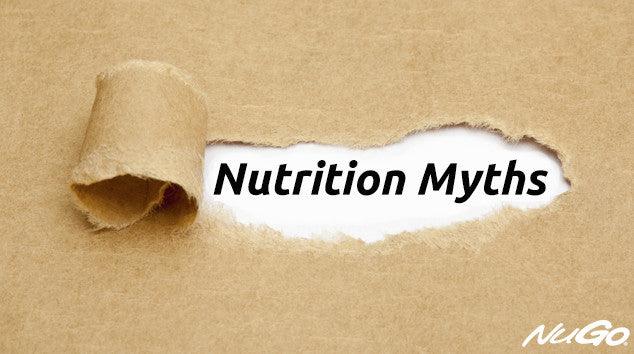There is so much information available about nutrition, diet, and health that separating the facts from fiction can be challenging. While debunked, myths like, eating before bedtime is fattening, and, eating carbohydrates causes weight gain still persist. In addition, the science of nutrition is ever evolving, so what may have been touted as fact in the past may be different today.
So, how do you separate fact from fiction? Consider these questions and suggestions.
1. Become a critical consumer. Read food labels and nutrition claims carefully.
- What are the claims being made? Are they realistic?
- Is purchase of a special product being suggested?
- Is there advice suggesting the replacement of food with supplements?
- Does the advice suggest you eliminate entire categories of food?
- Is the claim on the front of the package deceptive, like dark chocolate deception? Read the ingredients to tell the truth.
2. Consider the source of information and look for information supported by established scientific findings that includes a list of references or links to the scientific studies mentioned in the article.
3. Reliable websites and information are updated regularly to reflect the most current nutrition information and advice available.
4. No single food or meal “breaks” a healthful eating plan (or guarantees good health).Your overall pattern of eating, and living, is the most important focus.A wide variety of foods are suitable when eaten in moderation, and combined with regular physical activity and healthy coping strategies.
5. Credible information about nutrition comes from qualified nutrition professionals. Look for credentials such as RDN or LDN (registered dietitian-nutritionist or licensed dietitian/nutritionist). These professionals can help you look at your total eating plan and learn the balance and moderation needed for success.










Leave a comment
This site is protected by hCaptcha and the hCaptcha Privacy Policy and Terms of Service apply.